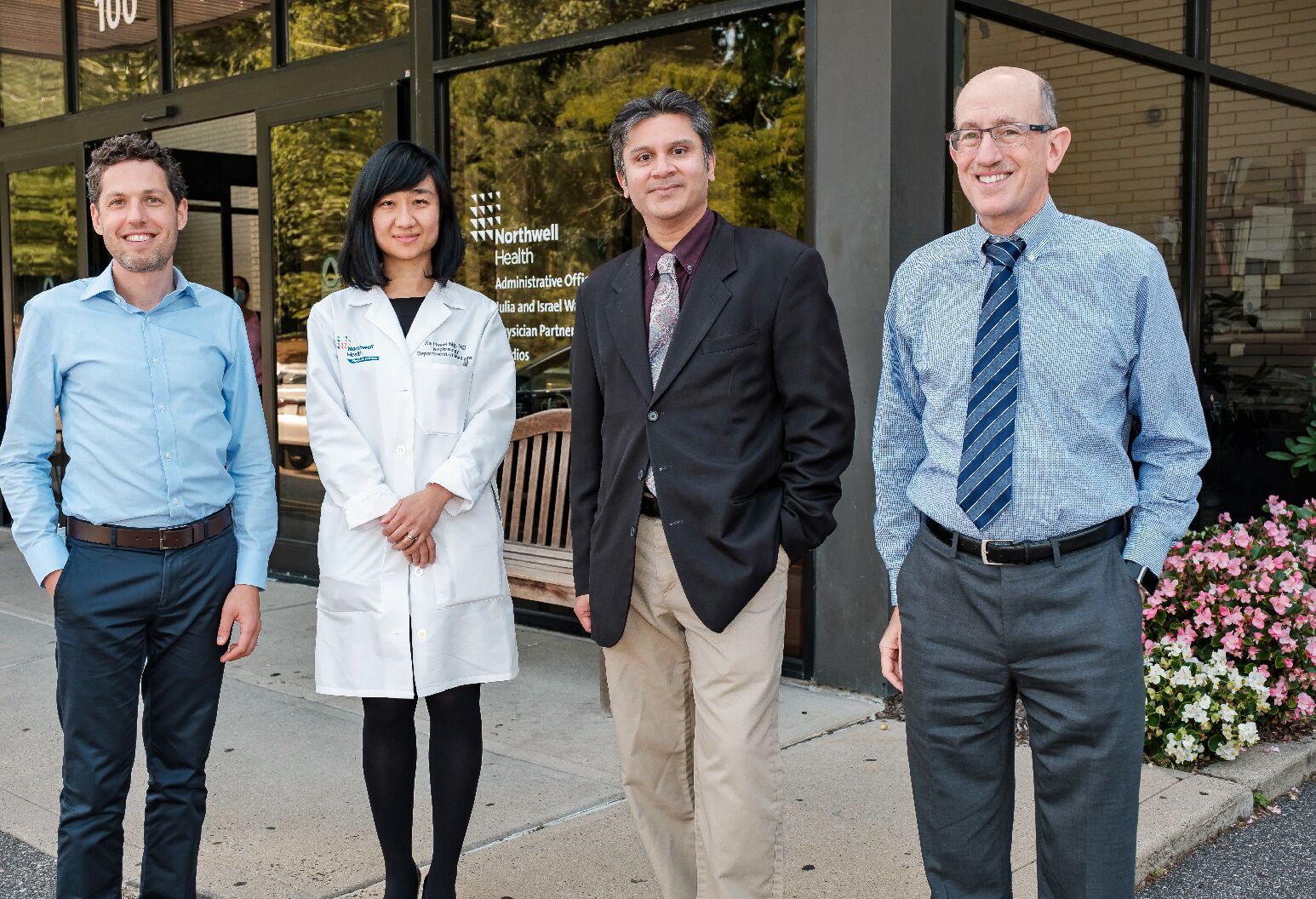The Feinstein Institutes—the research institutes of Northwell Health, New York’s largest health care provider—is home to 50 research labs, 3,000 clinical research studies and 5,000 people raising the standard of medical innovation. We make breakthroughs in molecular medicine, genetics, cancer, brain research, mental health, autoimmunity and bioelectronic medicine.
The latest
Feinstein Institutes reveals outcomes for COVID-19 Acute Kidney Injury hospitalized patients

Published in the American Journal of Kidney Disease, the retrospective analysis examines the outcomes for COVID-19 patients with AKI
Research from the Feinstein Institutes for Medical Research and Northwell Health’s Division of Nephrology have previously reported that more than one third of the coronavirus disease 2019 (COVID-19) patients who sought treatment at the hospitals of Northwell Health, New York State’s largest integrated health system, developed acute kidney injury (AKI). New research from the largest study of its kind details a more comprehensive look at outcomes for COVID-19 patients with AKI, including kidney recovery, the need for dialytic support and post-discharge care.
AKI is a sudden episode of kidney injury or damage, preventing waste from being filtered within the body and can often lead to death. The outcomes data published in the American Journal of Kidney Disease is a retrospective analysis of electronic health records (EHR) of 9,657 hospitalized COVID-19 patients between March 1 and April 27, 2020.
“Because of the high rates of AKI in COVID-19 patients, it is crucial that we understand how the virus affects recovery,” said Jia H. Ng, MD, a researcher at the Feinstein Institutes and lead author of the paper.
The study found that 39.9 percent (3,854 of 9,657 of patients) developed AKI. While 83.4 percent (3,216) of those patients did not need kidney replacement therapies (KRT), 51.7 percent (1,663/3,216) survived. Importantly, the majority of these patients – 74.1 percent – saw recovery of kidney function at the time of discharge.
Of patients with AKI who required KRT and survived, 66.7 percent (72/108) recovered kidney function. In the remaining AKI-KRT patients, a third (36/108) did not have kidney recovery, of which 91.7 percent (33) who had not previously needed dialysis left the hospitals needing ongoing dialysis care after COVID-19 and AKI.
“It was important to study whether COVID-19 can lead to ongoing kidney problems and we learned that most patients who develop AKI during COVID-19 infection do recover kidney function by the time of hospital discharge,” said Steven Fishbane, MD, an author on the paper and Chief of the Division of Nephrology. “Unfortunately, a small number of patients – about 1 percent – still required dialysis treatment after leaving the hospital.”
“Large-scale research of patient outcomes can lead to a better understanding of the virus’ overall complexity, including its significant impact on the kidneys,” said Kevin J. Tracey, MD, president and CEO of the Feinstein Institutes. “Advancing this knowledge will aid our frontline clinicians to make the most informed and effective decisions while caring for the sickest patients.”
Leading in groundbreaking nephrology research
Throughout the pandemic, The Feinstein Institutes and Northwell Health’s Division of Nephrology has published impactful research helping to unravel COVID-19’s complex impact on the kidneys.
One of the most significant studies, and catalyst for the current one, was published in the journal Kidney International in May. At that time, it was the largest study that analyzed more than 5,000 hospitalized COVID-19 patients and revealed that more than a third of them developed kidney injury. Since publication, it and has been highly cited numerous times amongst the global nephrology community.
Recently, another benchmark report revealed the results of COVID-19 kidney tissue biopsies which concluded that there was no presence of the virus itself in the tissue. This suggests kidney injury from COVID-19 happens due to complications of the disease and is not because of direct viral infection of the kidney.
